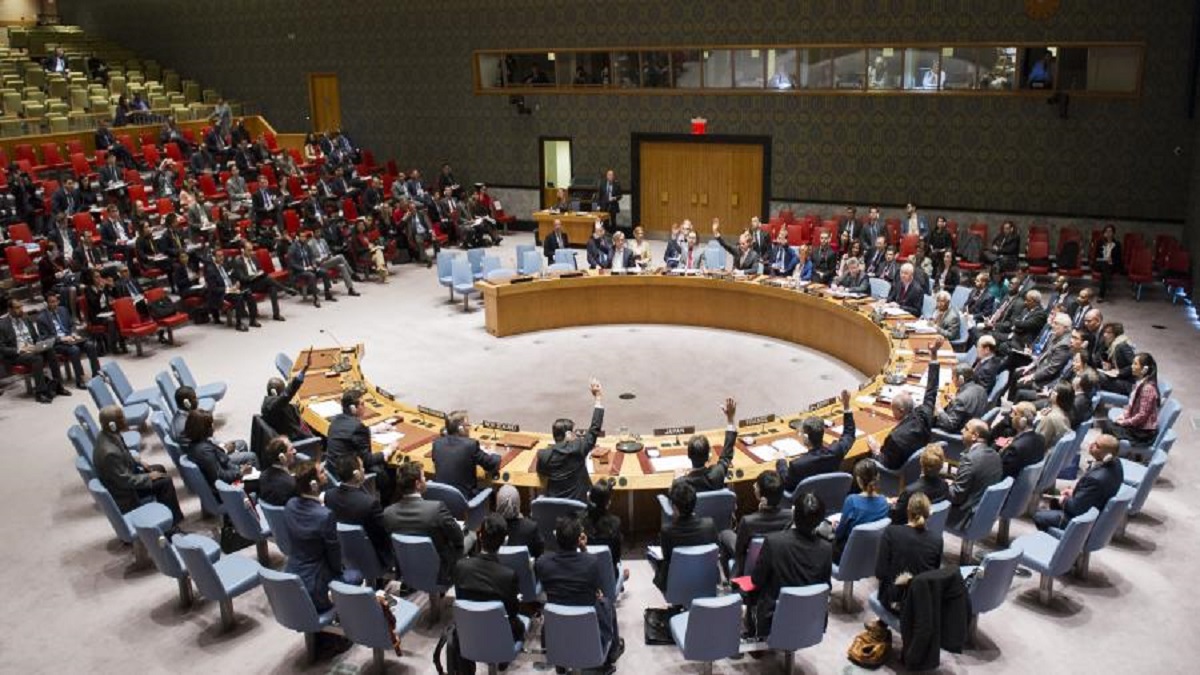Introduction : USA Refuses to Blame Russia for Ukraine War
The ongoing war in Ukraine has reshaped global geopolitics, causing deep rifts among nations regarding their stance on the conflict. One of the most recent and surprising developments is the United States’ refusal to directly blame Russia for the war in a series of United Nations (UN) votes. This move has placed Washington at odds with its European allies, who have consistently condemned Moscow’s aggression and pushed for stronger punitive measures. This unexpected shift in the US’s diplomatic approach raises significant questions about its broader strategy, the unity of Western allies, and the implications for Ukraine’s fight for sovereignty.
The US Position: A Strategic Ambiguity?
Historically, the United States has been one of Ukraine’s staunchest supporters, providing billions of dollars in military aid, economic assistance, and diplomatic backing. However, in recent UN votes, the US has abstained or refused to explicitly hold Russia accountable for the war, a stance that has baffled and frustrated European allies.
While the Biden administration continues to support Ukraine through various channels, its reluctance to take a clear position in UN resolutions has sparked speculation about Washington’s motives. Analysts suggest that the US may be seeking to leave room for future diplomatic negotiations, avoid escalating tensions with Moscow, or prioritize domestic political considerations ahead of the 2024 elections.
European Allies’ Strong Condemnation of Russia
In contrast, European nations such as the United Kingdom, France, and Germany have been unequivocal in their condemnation of Russia’s actions. They have consistently backed resolutions that hold Moscow responsible for the war, calling for increased sanctions and greater international pressure.
For Europe, the stakes are particularly high. The war has directly impacted the continent’s security, economy, and energy supplies. European nations fear that any hesitation in condemning Russia could embolden Vladimir Putin and prolong the conflict. Thus, Washington’s recent divergence has led to tensions between the US and its European partners, raising concerns about the unity of the Western bloc.
The UN Votes: A Growing Divide
The split became evident in recent votes at the UN General Assembly and the Security Council, where the US either abstained or softened its stance on resolutions condemning Russia. This shift stands in stark contrast to earlier votes, where the US had been in lockstep with European allies in calling out Moscow’s aggression.
Several European diplomats have privately expressed disappointment, arguing that a unified Western front is crucial to maintaining pressure on the Kremlin. Some see the US’s position as a sign of wavering commitment, while others believe it is a tactical move aimed at keeping diplomatic options open.
Possible Motivations Behind the US’s Stance
Several factors could explain Washington’s reluctance to directly blame Russia in UN votes:
- Preserving Diplomatic Channels: The US may be aiming to maintain a potential backchannel for future negotiations with Russia, particularly concerning broader geopolitical issues such as arms control and nuclear stability.
- Domestic Political Considerations: With the US gearing up for the 2024 presidential elections, political divisions within the country over foreign policy could be influencing the administration’s approach. Some factions argue that the US should prioritize its own security and economic concerns over continued deep involvement in Ukraine.
- China and Global Power Dynamics: The US might be recalibrating its strategy to focus more on countering China’s growing influence. A prolonged standoff with Russia could divert resources and attention from the Indo-Pacific region, which many in Washington see as a greater long-term strategic challenge.
- Fatigue Over Ukraine Aid: There is a growing sentiment within parts of the American public and political establishment that the US has already done enough to support Ukraine. Some lawmakers, particularly from the Republican Party, have voiced concerns over the scale of military aid provided to Kyiv.
Implications for Ukraine
Ukraine relies heavily on Western support, and any sign of wavering commitment from the US could have serious consequences. If Washington continues to take a more neutral stance in diplomatic forums like the UN, it could weaken international efforts to isolate Russia and pressure Moscow into ending the war.
Moreover, Kyiv has repeatedly urged its allies to remain united in their condemnation of Russia. Any cracks in this unity could embolden Putin, who has long sought to exploit divisions within the West to his advantage.
The Broader Impact on Transatlantic Relations
The divergence in US and European positions raises concerns about the future of transatlantic relations. The unity of NATO and the broader Western alliance has been one of the key strengths in countering Russian aggression. If the US and Europe continue to drift apart on Ukraine policy, it could weaken NATO’s effectiveness and create strategic uncertainties for other nations relying on Western security guarantees.
Furthermore, European leaders may begin considering more independent security and defense strategies if they perceive the US as an unreliable partner. This could lead to increased military spending and a push for greater European autonomy in international affairs.
Conclusion
The US’s refusal to directly blame Russia for the Ukraine war in recent UN votes marks a significant shift in its diplomatic stance, causing a rift with its European allies. While Washington continues to support Kyiv through military and financial aid, its reluctance to align with Europe in international forums raises questions about its broader strategic goals.
Whether this move is a calculated effort to keep diplomatic options open, a response to domestic political pressures, or a shift in global priorities remains uncertain. However, what is clear is that this divergence has the potential to impact Ukraine’s war efforts, the strength of the Western alliance, and the future of global security dynamics. As the war rages on, the world will be watching closely to see whether the US and Europe can maintain their united front or if cracks in their relationship will deepen further.

